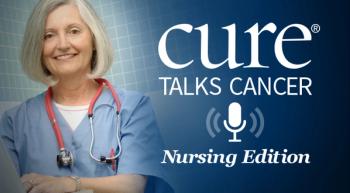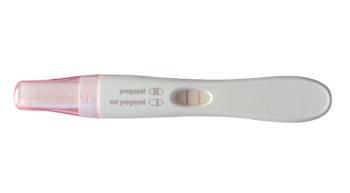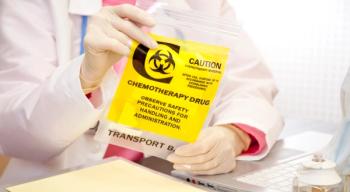
The Food and Drug Administration lifted a partial clinical hold on the CANOVA trial, examining venetoclax with dexamethasone in relapsed/refractory myeloma.

The Food and Drug Administration lifted a partial clinical hold on the CANOVA trial, examining venetoclax with dexamethasone in relapsed/refractory myeloma.

While clinical trials drive FDA approvals, real-world data may be equally important as it lends insight to a broader group of patients.

Patients with cancer who are receiving immunotherapy may have improved responses if they have a healthy and diverse gut microbiome.

While self-reported family cancer history is vital to screen individuals for hereditary cancer risk, its documentation tends to be lacking.

Personalized treatments are drastically improving the outcomes of patients with non-small cell lung cancer, but there is still work to be done when it comes to understanding drug resistance.

Biosimilars continue to push their way into the oncology market. They're different from generic drugs. Here's what nurses should know.

Patients with higher tumor mutational burdens tended to be more likely to be depressed, according to recent research.

The FDA approved pembrolizumab (Keytruda) for patients with advanced small cell lung cancer (SCLC) who experienced disease progression after 2 or more prior lines of therapy.

Oncology nursing is more than just a job to Barbara Bittner, RN, OCN.

The Food and Drug Administration (FDA) approved trastuzumab-anns (Kajinti), a biosimilar of trastuzumab (Herceptin) for the treatment of HER2-overexpressing breast cancer, metastatic gastric or gastroesophageal junction adenocarcinoma.

Cognitive behavioral therapy help to improve the lives of patients experiencing cancer-related fatigue.

The FDA approved pembrolizumab alone or in combination with 5-FU to treat recurrent or metastatic head and neck squamous cell carcinoma.

Breast cancer regimens can cause long-term cardiac toxicity in survivors. One trial is delving into why this is the case.

A recent study found that oncology nurses can play a key role in promoting the safety of oral anti-cancer medication, while freeing up time for oncologists, too.

Patients can track symptoms and anonymously send them to glioblastoma researchers around the world.

An easy-to-implement nurse-driven program can decrease the number of hospital readmissions, lowering costs and improving patient satisfaction.

Studies have shown that heated chemotherapy may benefit women with ovarian cancer, but is this the right treatment for everyone? One expert weighs in.

The results of genetic testing could have major implications for patients with breast cancer and their families.

Trebek's current outcome could offer a source of hope for patients with pancreatic cancer, who typically have poor prognoses.

Administering chemotherapy to a pregnant woman can be risky, but current guidelines about pregnancy testing are shaky.

Genetic and genomic testing are becoming more popular and useful in the cancer space.

There may be a correlation between androgen deprivation therapy and cardiac complications, but more research is still needed.

The Food and Drug Administration (FDA) approved ruxolitinib (Jakafi) for the treatment of patients 12 years or older with steroid-refractory acute graft-versus-host disease.

May is Skin Cancer Awareness month. What are some of the important conversations nurses should be having with their patients about the disease?

Certain populations are less likely to receive treatment for breast cancer. Nurses should lead a multidisciplinary team to improve that.

Through her Bravery Bags program, Harding Cranford brings together members in the healthcare setting and the community to brighten patients’ days.

Investigators are working on expanding immunotherapy use for this patient population, and genetic testing will be more important than ever.

A group of researchers in the UK sought out to determine the efficacy of a reduced-dose regimen of oxaliplatin (Eloxatin) and capecitabine (Xeloda) in this patient population through the randomized, phase III GO2 clinical trial.

In this month's episode, we'll hear from one extraordinary oncology nurse who ran 100 miles for cancer research.

While the FDA currently has no plans to ban textured breast implants, the agency did outline steps to ensure providers and patients are educated on breast implant-associated anaplastic large cell lymphoma (BIA-ALCL).